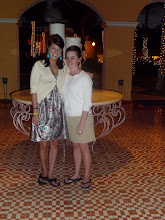 Culture can be defined in all different ways, but according to dictionary.com culture is defined as "the behaviors and beliefs characteristic of a particular social, ethnic or age group." In organizational communication, there are four different ways to define culture. The four types of culture are tough-macho guy, work-hard-play-hard, bet-your-company, and process culture.
Culture can be defined in all different ways, but according to dictionary.com culture is defined as "the behaviors and beliefs characteristic of a particular social, ethnic or age group." In organizational communication, there are four different ways to define culture. The four types of culture are tough-macho guy, work-hard-play-hard, bet-your-company, and process culture. Tough-macho-guy culture involves those who are put into high risk situations, such as police officers, military personal, and surgeons. These people often have to act tougher than they actually are or tougher than they actually feel in order to get their job done. The name of this culture is extremely stereotypical because it suggests the exclusion of woman. However, it is obvious women can be put in the same high risk situations and men and handle them equally. Often times these people are considered tough because they have to be courageous and brave to enter into the situations they do.
Work-hard-play-hard cultures focus on sales and making their customers happy. They want to work hard to meet their customers needs. By working hard individually, a person is working to make the company better as a whole. If individuals succeed in the company, the company will improve and succeed as a whole. This relational progress will ultimately make the individual happier, allowing them to continuously work hard. Individuals in this company are usually determined, highly motivated, and initiative taking. Some examples of these cultures are Mary Kay Cosmetics, McDonalds, and IBM. According to the Mary Kay Website, "every day Mary Kay is changing lives of women and children around the world. It is part of the Mary Kay heritage, and we are honored to continue Mary Kay Ash's legacy of making a difference." Mary Kay has individual make-up consultants who strive to make other people's live better. Since they all work towards creating a better business, they are individually happier.
Bet-your-company cultures endure high risks, but do not see immediate results. The feedback they receive is slow and is therefore not immediate. Some companies that exhibit this culture would be oil companies, architectural firms, and the military. The military was sent into Iraq taking extreme risks, however the feedback from their actions has been slow and minute. It could take years before the military receives the results they want or expect.
Process cultures endure low risks and receive feedback slowly. Often times, these employees do not see the results of their actions while they are still working. These cultures hold long meetings to discuss the best action. Since these cultures include the government and pharmaceutical companies, they must ensure that their action is the best possible action available. If the government implemented a law too quickly, they would soon regret it if something went terribly wrong. They must test the pros and cons of every decision they make to ensure it is plausible.

No comments:
Post a Comment